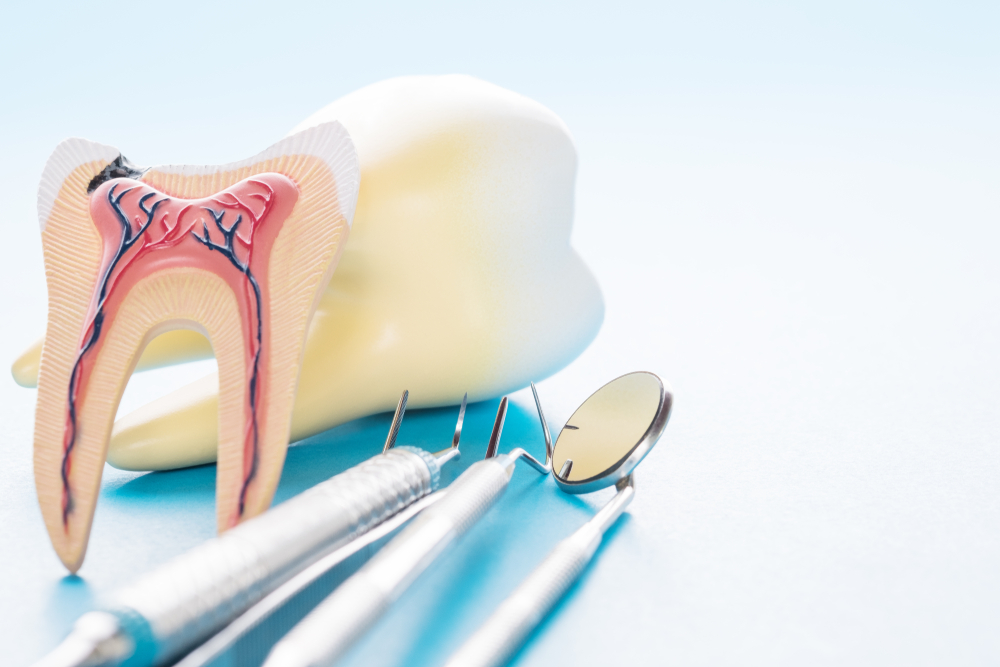
How An Endodontist Treats Pulp Concerns

Our natural teeth have a tough outer layer of enamel, but it’s not impenetrable. Underneath the enamel and dentin lies dental pulp (soft tissue, nerves and blood vessels). Pulp carries nutrients and blood to enamel and underlying dentin to keep teeth alive and healthy. Cracks, chips or erosion of tooth enamel allow bacteria to enter the tooth, causing dental pulp concerns.
Endodontists are specialists who focus their dental practice on preserving natural teeth and treating problems with dental pulp. Let’s look at what happens when dental pulp becomes inflamed and explore how endodontists treat these issues.
Understanding The Impact Of Dental Pulp Infections
Pulpitis refers to an irritation of dental pulp. Endodontists use diagnostic procedures such as electric pulp testing and tapping tests to determine the extent of the inflammation.
Reversible pulpitis happens when the dental pulp is alive and the natural tooth can recover. The infected pulp can be removed and a normal filling placed in the tooth to prevent further damage.
Unchecked, it becomes irreversible and the natural tooth cannot recover without more invasive treatment. The pulp may actually die, a condition known as pulp necrosis. A severe infection in the pulp can spread and cause an abscess if not treated. Abscesses can lead to life-threatening complications, so getting endodontic treatment fast can be life-saving.
How Endodontists Treat Pulpitis
Treatments for pulpitis fall into three major categories: treatments that can limit the damage; treatments that replace dental pulp with a biocompatible alternative; and treatments that involve removing the natural tooth.
For pulpitis in early stages, an endodontist may remove the damaged pulp and add a crown to resolve the issue. If the condition becomes irreversible, though, they will perform a root canal to remove all of the affected tooth’s dental pulp, clean the tooth roots and replace the pulp with gutta-percha or a similar filling.
If the outer structure of the natural tooth cannot be strengthened with a crown and/or a post and core, tooth extraction may be the only remaining option. It may be replaced with a dental implant or bridge.
Your endodontist can answer questions about how to treat your dental pulp infection and what the prognosis is for saving your natural tooth.
Call Our Office For A Dental Pulp Evaluation
If you’re concerned you may have a dental pulp problem, call our office at 602-242-4745 for an evaluation. Our practice offers 24/7 emergency treatment options to ensure you can access the right treatment whenever you need it.
